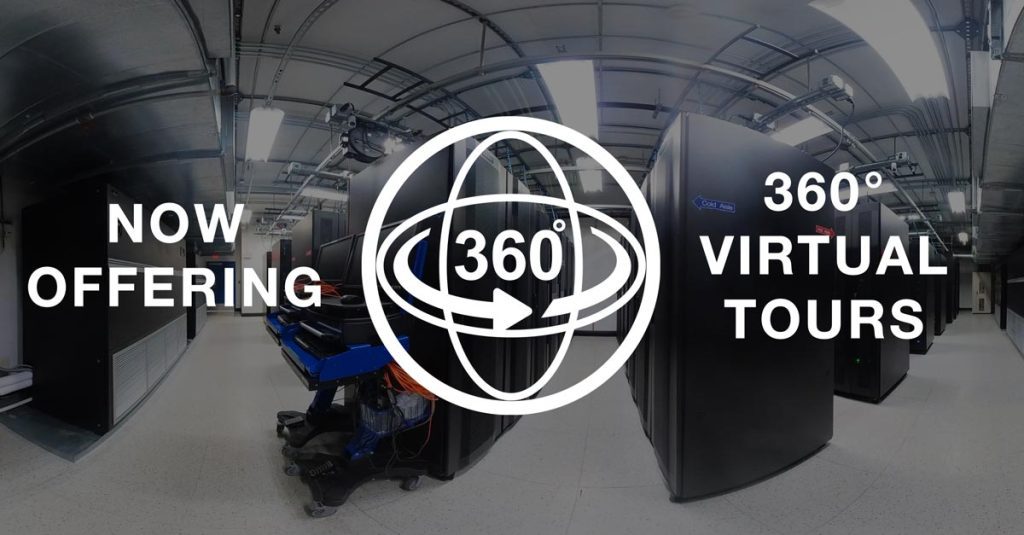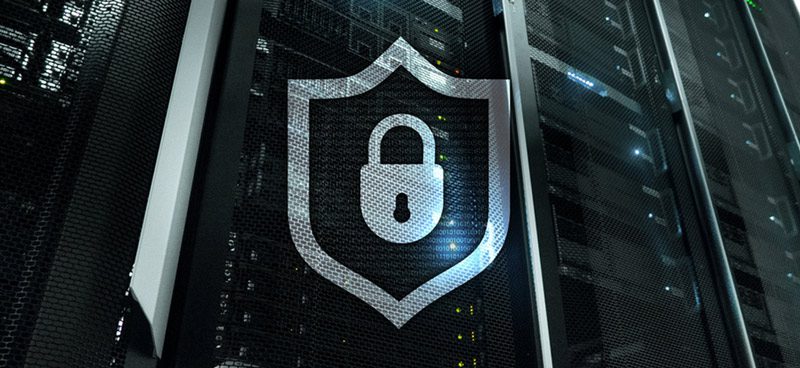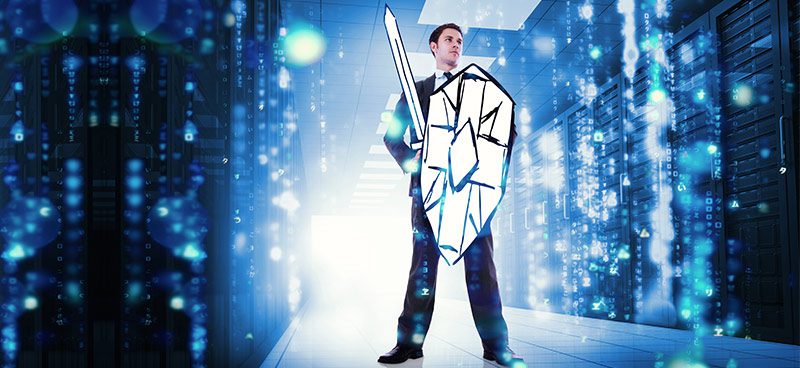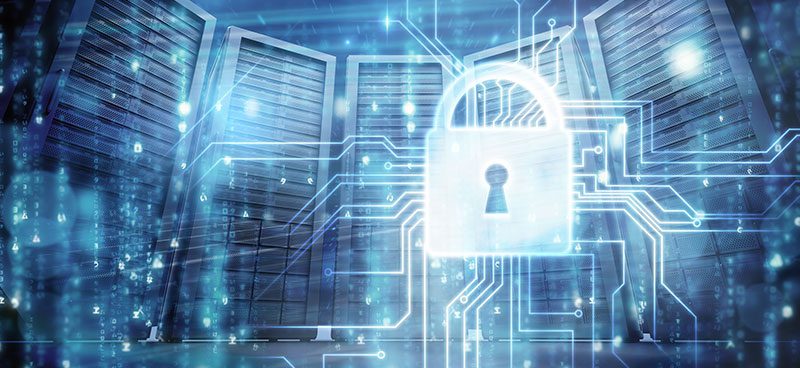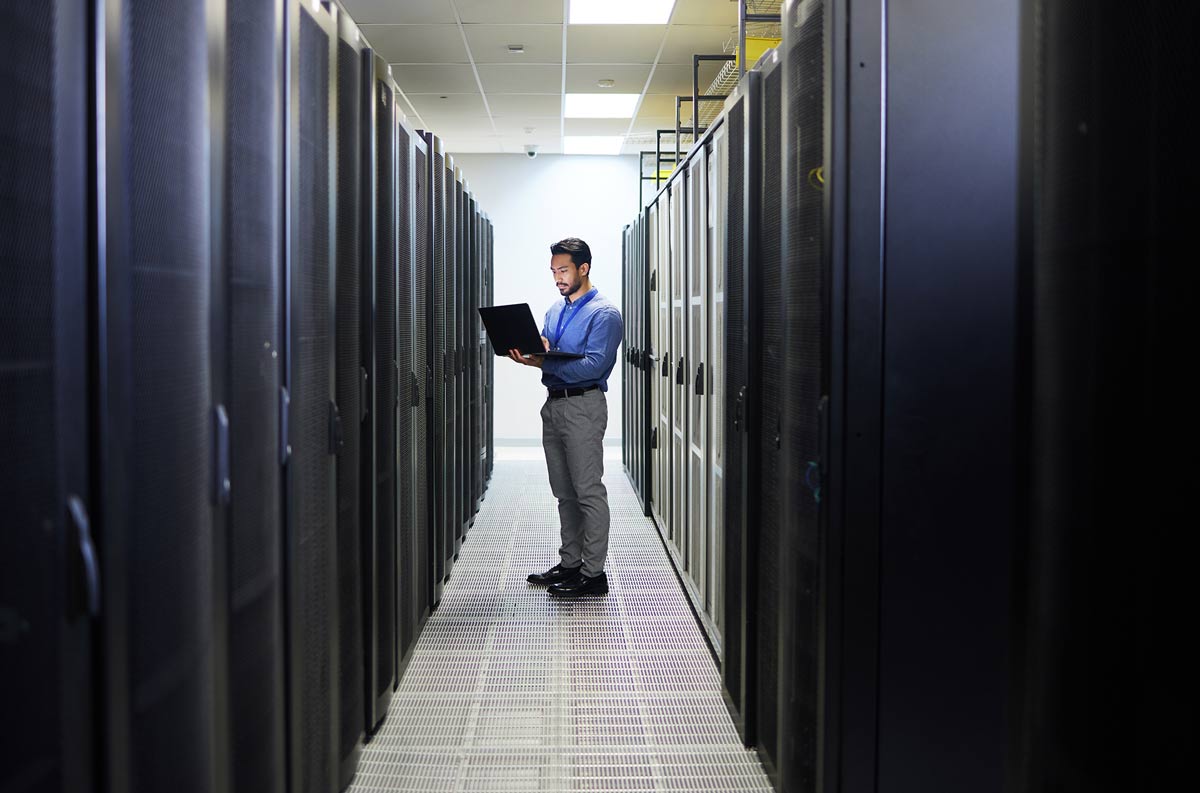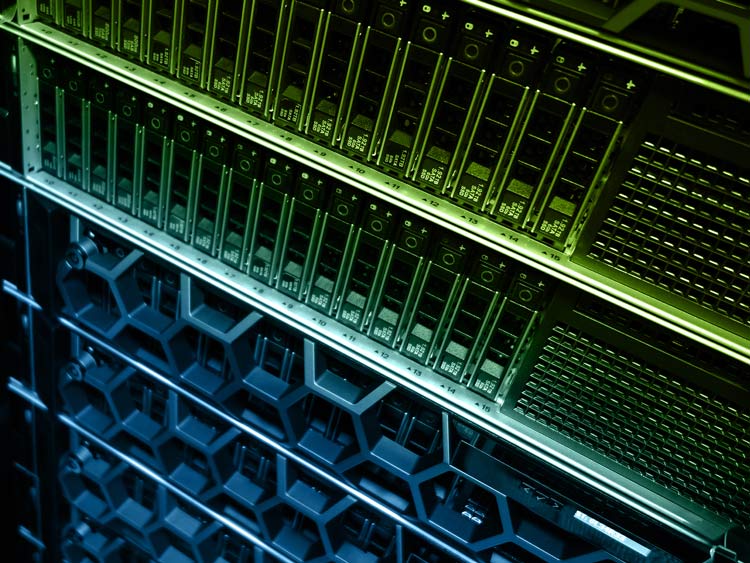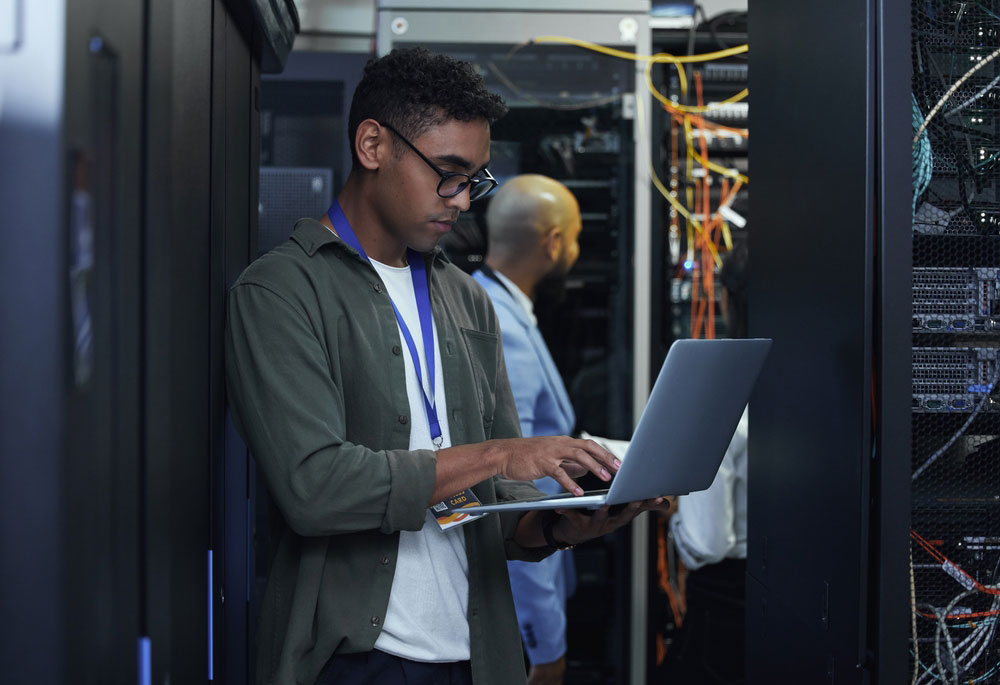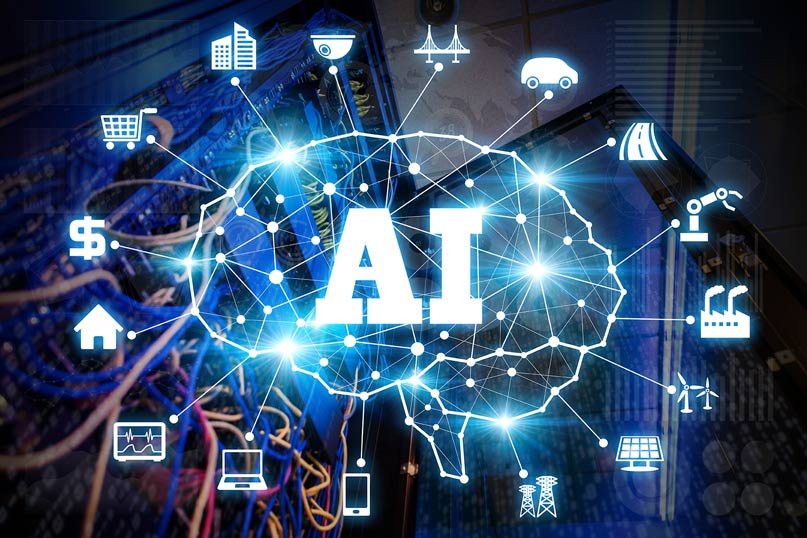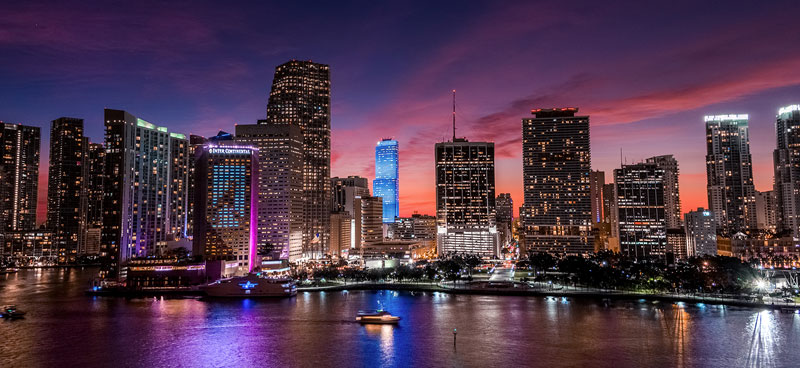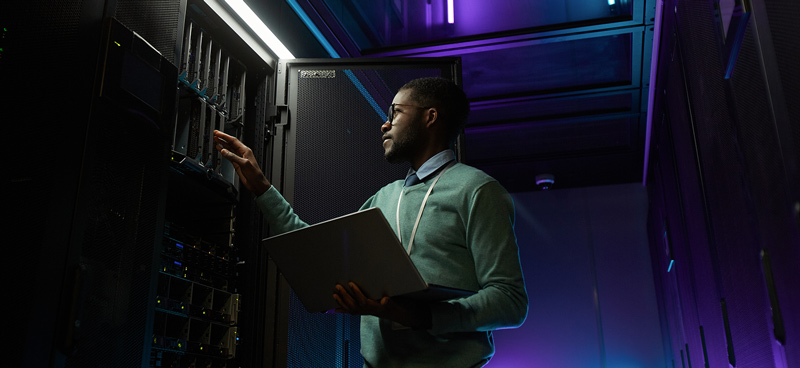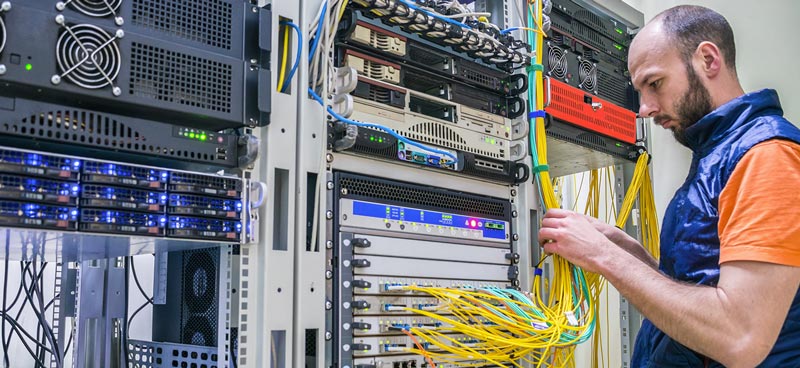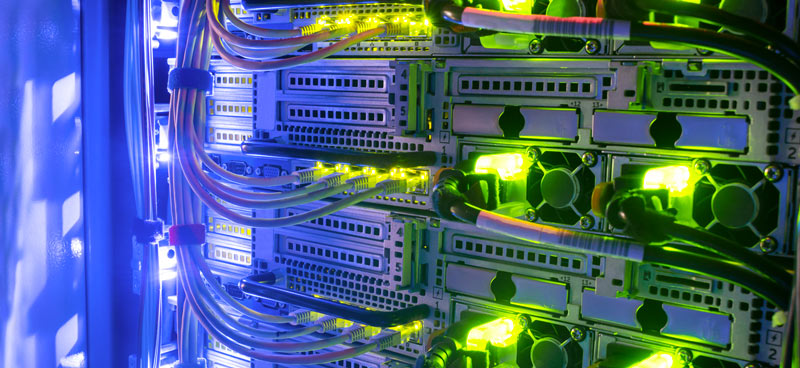What comes to your mind when you think about data center physical security?
Cyberattacks? Data storage? Maybe business uptime?
Sure, data center physical security plays a crucial role in all of the above, but that’s not all there is to these facilities.
Besides helping businesses store and transfer information safely, data centers must ensure their facilities are safe and secure.
Physical security is just as important as digital when choosing a data center. Read our latest blog to find out what makes a data center physically secure to ensure your interests are protected.
Here’s why any colocation provider worth your attention must have adequate physical security.
What Security Measures Should Be Implemented For Data Center Physical Security?
Data center physical security measures are crucial for protecting sensitive information and ensuring the uninterrupted operation of critical infrastructure. It’s important to note that these measures provide a general overview, and specific data centers may have additional or customized security measures based on their unique requirements and threat landscape. Implementing these security measures collectively strengthens the physical security of a data center and safeguards critical infrastructure and sensitive information.
While specific security measures may vary depending on the data center’s location, size, and function, here are some key measures commonly implemented:
1. A Reliable Power System
Back in 2021, the Amazon Web Services (AWS) outage occurred. And it was catastrophic. The outage went on for about seven hours, crippling AWS’s operations.
Close home, a Facebook outage affected over 3.5 billion customers while exposing the company’s faulty security protocols.
The downtime resulted from a configuration change to Facebook’s main router that conveys traffic to and from the social media giant’s data center.
The lesson learned from this outage is that you shouldn’t depend on electrical grids to power your services.
Instead, it would be best to have several power backups to keep your data center operational in case of a power outage.
Because servers take considerably long to reboot, they can lead to disastrous interruption to your company’s day-to-day operation and, by extension, affect your bottom line.
Volico Data Centers has implemented the following measures to handle power outages:
- Dual FPL Priority-1 Power Grids
- 10MW expansion power capacity
- N+1 Generac Diesel Generators
- N+1 GE UPS Infrastructure
- 1 Hour FPL onsite SLA
2. Fool-proof Access Controls
The truth is, old-fashioned security measures like passwords, wired systems, or key locks just won’t cut it in today’s world. Hackers are smarter, and you need to be too.
Imagine your data center as a fortress – add some physical barriers, a trembler wire, cameras that watch every move, and guards on duty 24/7.
While that’s a good start, you shouldn’t stop there.
You can take things a notch higher with state-of-the-art access control technology. Some solid options include facial recognition powered by AI, biometric authentication, or codes sent straight to your mobile device.
At Volico, we haven’t left security to chance. Here’s what we’ve done to stay one step ahead of the bad guys.
- 97-Point Biometric access
- Surveillance cameras
- Controlled access to the data center floor
3. Dealing with the Right Vendors
Securing your data center’s sensitive information is critical, especially when working with third-party vendors. But don’t settle for just a basic background check. Here’s how to keep your data safe and sound:
- Lock up the data – Encrypt sensitive information
- Restrict access to information – Assign role-based access to vendor employees to limit access to only what’s necessary
- Make sure you’re up-to-date – Ensure the vendor’s software receives regular security updates to avoid vulnerabilities.
- Do your homework – Vet your vendors with proper due diligence to make informed decisions
- Take control – Make sure you’re in charge of managing data flow to vendors.
The idea is to ensure that your customer’s data is secure while complying with regulations and laws.
4. Ability to Handle Social Engineering Attacks
For starters, social engineering involves tricking company employees into disclosing classified info later used to conduct criminal activities.
And attackers don’t need technology to execute social engineering activities.
For instance, the invaders can make anonymous calls to your staff or walk into your organization without badges.
Further, a cybercriminal can pose as a manager and trick a call assistant into divulging crucial information. They can even pretend to be an assistant and call your bookkeeper requesting payment info.
That said, here are a few social engineering attacks that may happen to a data center.
- A person poses as a technician who wants to discuss an important matter with one of the senior managers.
- An employee tailgates their colleague to gain access to sections of the data center they aren’t supposed to
- A malicious employee leaves a device, such as a portable storage disk, hoping another colleague will plug it into your facility’s system and install malware.
- An employee asks a colleague to use their already logged-in computers
Whether an inside or outside job, it is crucial for data centers to take measures that’d help prevent social engineering attacks.
At Volico Data Centers, for instance, you must produce a valid photo ID before entering our facility. In addition, you need a key card and a biometric hand scan to access the colocation area.
Meanwhile, check out our services.
5. Robust Fire Protection
A good colocation data center must have adequate fire protection. There are multiple hazards that can cause a fire inside and outside the facility, including:
- Cable and equipment overheating
- Electric short-circuits and overloads
- Flammable material within the facility
As an immediate measure, the facility should store customer data in the cloud. On top of that, it can implement the following measures to prevent fire accidents.
- Round-the-clock security
- Install a reliable fire suppression mechanism such as hydrants and fire extinguishers.
- Camera surveillance
- Install smoke detection apparatus
- Install humidity control, cooling, and temperature monitoring gadgets within the facility.
- Install fire detection equipment to help contain accidents before they cause significant havoc.
Volico Data Centers use gas-based inert fire suppression, among other measures.
6. A Robust Mechanism to Counter Insider Threat
Not all employees are loyal; some may collude to steal data from your facility and sell it on the interwebs.
While insider crimes are most common in private companies and government agencies, a data center needs to have a mechanism for dealing with this problem.
Again, it all boils down to who can access sensitive information within your data center. Here are a few things you can do to counter insider threats:
- Implement a strict security governance policy
- Ban the use of storage devices like USB flash drives within the facility
- Ban the use of personal email account
- Don’t give authentic passwords to your employees
- Ensure employees require biometric scans to access specific parts of your data center
The Bottom Line
One of the ways to determine if a specific data center is good enough for your needs is to review its security policies.
You want to deal with a colocation provider that guarantees your company’s data will be stored safely month in, month out.
The more security measures, the better the data center.
All Volico Data Centers are built for reliability, complete with data recovery, fire suppression, biometric hand scan, and redundant power infrastructure.
To learn more about physical security measures in our facilities, call us at (305) 735-8098 or chat with one of our business reps.





